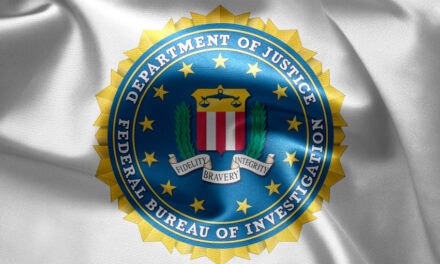We support our Publishers and Content Creators. You can view this story on their website by CLICKING HERE.
Prominent Church of England leaders RESIGN from priesthood amid allegations of mishandled sex abuse cases
- Two prominent Church of England leaders, Archbishop of Canterbury George Carey (served 1991-2002) and his successor Justin Welby (served 2013-2024), have resigned due to sexual abuse scandals and mishandled cases.
- Carey was criticized for reappointing a priest, David Tudor, who had been banned from ministry due to sexual abuse allegations. His resignation acknowledged the BBC investigation’s findings but did not explicitly address the allegations.
- Welby announced his resignation in November, citing a cover-up of child sex abuse cases involving John Smyth, a former Church of England summer camps leader, who is accused of abusing over 130 boys.
- The resignations and ongoing investigations into abuse cases highlight the Church of England’s failure to address sexual abuse promptly. Additionally, it faces criticism for its perceived move toward more progressive values, at odds with traditional Christian teachings.
- The crisis has raised concerns about the Church of England’s credibility and its ability to maintain its role as a spiritual and moral guide. The incoming leadership faces pressure to address past failures and rebuild trust within the community.
The Church of England continues to grapple with the fallout of a sexual abuse scandal as two of its prominent clerics have resigned. These resignations, part of a broader crisis of leadership and values within the Church, have sent shockwaves through the Anglican community.
George Carey, who served as Archbishop of Canterbury from 1991 to 2002, resigned following allegations that he mishandled a sex abuse case involving a priest named David Tudor. According to a BBC investigation, Carey facilitated Tudor’s reappointment to a diocese in 1994, five years after Tudor had been banned from the ministry due to accusations of sexually abusing teenage girls.
Carey’s resignation on Dec. 4 is seen as an acknowledgment of the investigation’s findings and the subsequent criticism. However, his resignation letter did not explicitly address the allegations, instead citing his 60 years of service and his approaching 90th birthday. The BBC investigation raised significant questions about Carey’s leadership and decision-making during his tenure.
Carey’s departure from the priesthood followed the resignation of Archbishop of Canterbury Justin Welby, who has served since 2013. Welby announced his resignation in November, citing a cover-up of child sex abuse cases that spanned a decade.
Welby’s resignation came after a report revealed that the Church of England had known about the abuse allegations against John Smyth, a former leader of Church of England summer camps, since 2013. Smyth, who died in 2018, is accused of sexually and physically abusing over 130 boys and carrying out thousands of lashings. (Related: PROOF: The Catholic Church is infested with DEMONIC child rapists known as “priests” … 300 “priest predators” named in grand jury report.)
The resignations of Carey and Welby, along with the subsequent investigations, highlight the extent of the Church’s failure to address sexual abuse cases promptly and effectively. Critics argue that Welby’s resignation, while necessary, is just the beginning of a long-overdue reckoning for the Church of England.
Crisis reveals tensions between progressive agenda and traditional values in the Church of England
These prominent leaders’ departures have also shed light on the Church of England’s increasingly “woke” agenda, which has drawn criticism from traditionalist Christians. For instance, Carey’s support for assisted suicide in his recent plea to Church of England bishops to back a parliamentary bill on legalizing assisted dying stands in stark contrast to traditional Christian teachings on life and death. This stance has been described as counter to Christian values by many within the Church.
Similarly, Welby’s advocacy for LGBT rights and social justice issues has been seen as evidence of his alignment with progressive, rather than traditionally Christian, values. His resignation comes amid calls for the removal of Church of England leadership perceived as moving away from core Christian doctrines.
The scandal has also drawn attention to the mounting pressure on incoming leaders, including Archbishop of York Stephen Cottrell, who is set to take on the role of interim Archbishop of Canterbury. Cottrell, who has been accused of allowing Tudor to continue in his position despite restrictions, faces a challenging path as the Church seeks to rebuild trust and address the crisis of leadership.
As the Church of England grapples with these scandals, there is increasing concern about the long-term consequences for the institution’s reputation and its ability to serve as a moral and spiritual guide for its members. The resignations of Carey and Welby, along with the broader crisis, highlight the need for a comprehensive overhaul of the Church of England’s leadership and policies to address past and present failures.
The Church of England now faces a critical moment in its history, one that will determine its future role in the lives of its adherents and its place within the broader community. This crisis calls for immediate and decisive action to restore its credibility and trust within its community.
Head over to OutrageDepot.com for more similar stories.
Watch this video about the inconsistent stance of now-resigned Archbishop of Canterbury Justin Welby on the issue of abortion.
This video is from the Airtv International channel on Brighteon.com.
More related stories:
WOKE POPE says transgender people may be baptized as Catholics and serve as godparents.
Kamala Harris, self-proclaimed victim’s advocate, refused to prosecute priests for sexual abuse.
Sources include:

 Conservative
Conservative  Search
Search Trending
Trending Current News
Current News 





